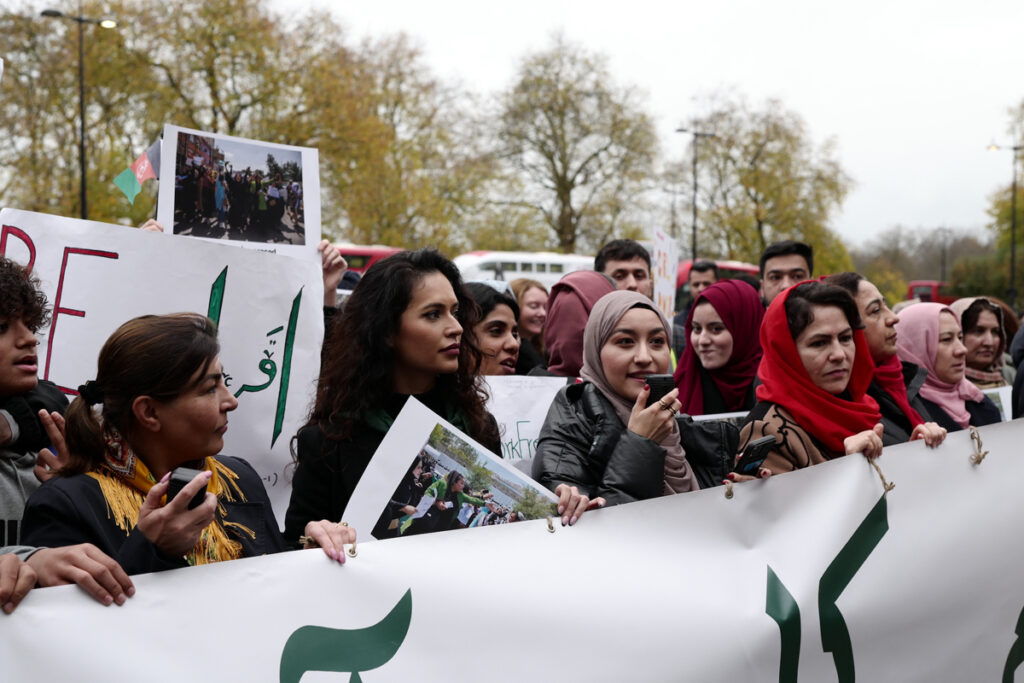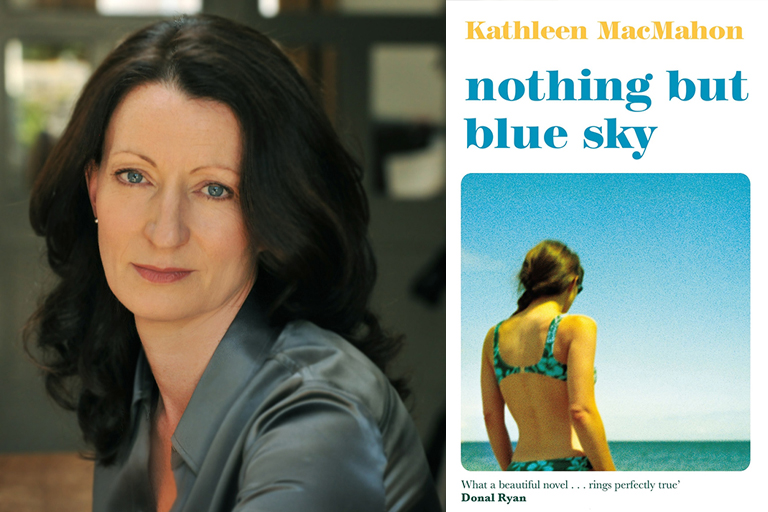Zehra Zaidi (@Zehra_Zaidi) is a British lawyer, development specialist and activist coordinating several campaigns to support Afghan women. Fawzia Koofi (@Fawziakoofi77) is the first female Deputy Speaker of the Afghan Parliament, one of the few Afghan women to have acted as a Peace Negotiator, President of Women for Afghanistan and author of The Favored Daughter: One Woman’s Fight to Lead Afghanistan into the Future (and is finalising the follow up to this memoir in exile)
On 15th August, the second anniversary of the fall of Afghanistan to the Taliban, Zehra and Fawzia write about the plight facing Afghan women and girls and crucially, what needs to be done – and can be done by all of us – to support the brave, resilient and inspiring women of Afghanistan who are risking so much to fight against gender apartheid.
The second year anniversary of the Taliban takeover is a dark day for all those fighting for an inclusive and safe Afghanistan. For two years now, women have been banned from employment – even beauty salons were ordered to close. Women and girls have been stopped from attending university and schools and this ban now extends from Grade 3 in primary school. Basic freedoms have been denied such as attending parks, gyms and mosques. Women cannot leave their house or travel without a male relative. This is now being referred to as “gender apartheid”. No other term can carry the severity of what is going on.
Afghan women live in a prison under a deeply misogynistic and brutal regime and yet, it is Afghan women who remain the main bulwark of protest against the Taliban. Every day, they take to the streets in Afghanistan at a huge risk to their own safety. Every day, Afghan women who had to flee the Taliban – and in the diaspora – lobby governments and the international community to take concrete action.
There are no days off.
However bleak the situation, the only course of action is perseverance.
In the UK, a coalition of civil society organisations and activists and Afghan women have been working together(1). We write to you, the thoughtful and socially conscious community of the Women’s Prize for Fiction, to join our collective march for freedom(2). Every event, article or social media post in solidarity adds to the cacophony of voices demanding action.
Firstly, there has to be a collective stand against gender apartheid. The Taliban have not changed. It is not enough for governments and the international community to merely issue strongly worded statements of condemnation. Afghan women have long called for the international criminal court (ICC) to open an investigation into the human rights violations by the Taliban as a crime against humanity of gender persecution. This has been echoed by Amnesty International(3) and most recently, Gordon Brown(4).
Secondly, governments and the international community should not engage with the Taliban without any form of conditionality. This would include:
- A commitment by the Taliban to create an inclusive government based on the will of the people and accountability;
- Restoration of the rights of women and girls, and human rights in general. Security is not just the absence of war;
- Evidence that the Taliban have disassociated themselves from other extremist, militant groups.
Thirdly, Afghan women need to be given the chance to lead on the future of their country and included in political discussions on what that future might look like. They have expertise and ideas, and need to be given the space and support to meaningfully contribute.
Our coalition has been pushing for the UK and other governments to support the convening of a Global Summit for Afghan women and girls (“Global Summit”). A dedicated focus is needed for Afghan women and girls in the form of a specific summit with enough time to discuss intersectional thematic issues such as education, employment, health, food security, and accountability for the perpetrators of the conflict and violence of the past decades. Crucially, such a summit needs to focus on a political pathway (i.e. what is next beyond humanitarian aid) and delineate a strategy for principled engagement putting Afghan women at the centre of a political process.
This is a litmus test for governments to step up if they stand for human rights, gender empowerment and democracy. Make no mistake, this is a test of global values. The Taliban need to be challenged at all costs to prevent the condoning or normalisation of gender apartheid in Afghanistan, or indeed any other nation or community.
We would not be writing this article if we did not believe in the power of ordinary people to force political change, and in the ability of a swell of public support to carry movements over the line. What is at stake is life, liberty and freedom, and the future of a country that has so much potential to offer to the world.
Afghan women are brave and resilient but they need support. An essential ingredient for resilience is hope. Let’s show Afghan women that people are listening and stand with them. There is latent power in solidarity and sisterhood. Let’s raise our voices and show the world who we are.
Here’s how you can help:
-
- Write to your local MP to urge the government to set out a framework for principled engagement with the Taliban. Moreover, support the Global Summit so that Afghan women can make concrete recommendations in this regard;
- Amplify Afghan women voices on social media, and post and share what is happening in Afghanistan especially to end the persecution of women and girls by the Taliban, using the hashtags #EndGenderApartheid #LetAfghanGirlsLearn;
- Host events and panel discussions highlighting what is going on in Afghanistan (ensuring there is representation of diverse Afghan women on the panel). You could even host readings from Untold’s anthology My Pen Is the Wing of a Bird: New Fiction by Afghan Women (MacLehose Press, 2022) – https://untold-narratives.org/write-afghanistan/;
- Sign a petition about supporting Afghan women, including:
Change.org petition for a Global Summit: https://www.change.org/p/convene-a-global-summit-on-afghan-women-and-girls
Change.org petition for a specific legal route for Afghan women as there is no way for a woman at risk in Afghanistan to apply for asylum to the UK – https://www.change.org/p/create-a-uk-asylum-and-resettlement-route-for-afghan-women-at-risk?redirect=false
To stay up to date, follow the social media accounts of Afghan women and civil society activists working in this space (dozens are referenced in the articles linked in footnotes)
Footnotes:
(1) See our position paper and letter set out on the ODI website: https://odi.org/en/insights/position-paper-advisory-group-for-a-global-summit-for-afghan-women-and-girls/ and https://odi.org/en/insights/dear-prime-minister-a-letter-from-the-advisory-group-for-a-global-summit-for-afghan-women-and-girls/
(2) Independent News
(3) Amnesty International
(4) BBC news








